An essay in which I explore the idea that female mate choice is an essential factor for a flourishing civilization. Many cultural narratives dismiss or belittle the ideas that the value of women to society lies in their choice to have children or their choice of mates, but these are simply more instances of self-centered and unserious ideas meant to tell (female) consumers what they most want to hear: follow your impulses and make decisions only for yourself. When too many people make decisions only for themselves, unbounded by institutions or social constraints, everything good that we enjoy and everything lasting that we’ve built disappears.
Our culture has intentionally elided the distinctions between men and women and their distinct social roles, but the resulting confusion can only generate harm and dysfunction in the long run.
Women need to choose good men, and our culture should instruct them on the best ways to do it. Too often, women now are encouraged (by the culture, and by other women) to chase fleeting emotional satisfaction and status in their mate selections.
It’s axiomatic in our culture that choice is fundamental to happiness. Restrictions on all but the most egregious instances of aggression or property crime lead to injustice and to widespread unhappiness. Choice allows people to choose their paths and therefore nourishes happiness and contentment.
Many people are beginning to suspect that this is a flawed and seriously incomplete view of human psychology. Choices to do what? How are people to be taught what choices are best? How can everyone making their own selfish choices, freed from any conception of social benefit or role, not lead to social fragmentation and selfishness? What will happen if the social structure within which we’re making choices frays and becomes polluted by consumerism or personality pathology or political ideology? But that is the cultural program that we’re now running, for better or for worse: it is inherently good for people to make their own choices, for their own reasons. Judgement and shame are always to be regarded as illegitimate, unless they’re used in the service of modern orthodoxy.
Observe the language we use: living your truth, finding yourself, being true to yourself, your ‘authentic’ self. It’s a curious fact that this language has been embraced more by women than by men, and that it now forms a significant substrate of our political rationalizations. Even when it doesn’t much impinge upon their lives, men still value the concept of duty. For many young women ‘duty’ is an anachronism - something that might relate to soldiers or paramedics or something, but not a concept with any relevance to modern life. You can spend centuries on TikTok without hearing any reference to duty. The truth is that we all have duties, and they change according to our roles and privileges. That is all that a society is: a network of relationships, defined by liberties and responsibilities (duties). Social responsibility used to be a well-understood concept, universally inculcated in children across virtually every culture and throughout each era. ‘Social responsibility’ now summons vague notions of climate alarmism or sexual tolerance, or maybe good corporate governance. The idea that responsibility is a real and useful constraint, placing active obligations on all of us to choose and behave in certain ways, has been badly eroded.
Freedom / Responsibility
The freedom to select a mate is fundamental to our society. The idea of being forced into a romantic relationship is anathema to our cultural values. We regard the women of Afghanistan, being married off by male relatives or forced into distasteful commitments while still teenagers, with pity. Despite the gestures toward cultural relativism, we all understand that choosing sexual and romantic partners is an important element in making a happy and self-actualized life. But choice isn’t sufficient for happiness. Choice must be bounded by notions of social benefit and responsibility. Women in the West now have the unlimited freedom to choose their mates in our society (save for in some isolated countercultures or ethnic minorities). What are some of our conceptions of social good and responsibility bounding female mate choice?
There are none. That may seem like an exaggeration at first glance. Are women expected to choose honest men as husbands…. or are men blamed for being dishonest once chosen? Are women expected to avoid narcissistic or entitled men (more difficult when you’ve grown up in a dysfunctional family of origin, or if you yourself have attachment or personality disorders)… or are men blamed for being narcissistic and entitled once chosen? Do women share any blame for the increasingly common situation (with ruinous collective social consequences) of single motherhood? If such expectations and such blames exist, I’ve never encountered them. Men are encouraged to be good and useful by our society, and women are encouraged to be ambitious and independent, but nowhere are women urged to choose men carefully or well. Any criteria that a woman might use to select a man is regarded as inherently worthy and valid. After all, it’s her choice.
I’m not saying that women are responsible for the misbehavior and abuse of men. Everyone is responsible for his own actions, and the liar and the cheater and the narcissist and the abuser must bear full responsibility (or more likely, in the case of the narcissist, deflect and reframe responsibility) himself. But the sad and obvious fact is that there are often abundant warning signs to these behaviors, and the feelings-oriented romantic philosophies of many women contribute to the proliferation of romantic opportunities for abusive and narcissistic men. It is women who suffer more infidelity. It is women who suffer more physical abuse. It’s women who will more often end up single parents (and will sometimes be rewarded with child support or welfare or alimony at correspondingly higher rates, which won’t erase the social damage of their situation for their children). It’s therefore women who have an especial responsibility to avoid abusive and dysfunctional men, for the sake of themselves and their potential children. There’s no way to craft a cultural narrative that validates the instincts and feelings of women and also introduces warnings about deceit and manipulation and narcissistic abuse. A culture can affirm the emotional impulses of women, or it can create messages about the unreliability of men and the shaky foundations of instant romantic attachment and ‘chemistry.’ I think that our culture has cultivated the latter, and abandoned the former. Why would this be the case? Simply, I think it’s the message that women want to hear.
Messages that Women Want to Hear
Let’s consider some of the cultural narratives that we live with: body positivity; sex positivity; the importance of self-esteem; the urgency of “living your truth”; the primacy of romantic passion as a decision-making mechanism. Do any of these really apply or appeal to men? Have you ever heard a fat man praised for his beauty, because all bodies are beautiful? Have you ever heard a middle-aged man celebrated for his sexual preference of young women (which is both sex positive and authentic)? Have you ever heard of a bachelor encouraged by the culture to pursue many short-term, commitment-light romantic connections, because that’s what his romantic impulses were telling him to do? Of course you haven’t. Neither have I. That’s because these messages simply don’t apply to men. They weren’t crafted to validate masculine tendencies and they’re not consumed by men. These are messages that have been written by women, for women.
The Importance of Mate Selection
I don’t much care how women choose men, personally. Most women are (somewhat) psychologically healthy and sensible, and so most men can win hearts by being honest and decent, although I don’t like the directions in which our trends are moving. But the selection of men has enormous social consequence. The idea that the signals a young women uses in choosing a boyfriend are of urgent concern to our society is a strange and off-putting conception in the context of the modern world. In our society, people are relentlessly told that decisions only matter for the people making them - as long as they’re happy, everything is fine. Even shame and regret have been discredited. But collective beliefs and decisions can completely change the course of a civilization. That’s why values are so important - not as individual expressions of rightness or truth, but as markers of social consensus and as anchors for shared understanding. Cultural values offer solutions to problems which have already been found, removing any uncertainty or ambiguity for the people who face those problems anew. We have a very shallow and unworkable idea of values, which revolves around being fashionable, attending to status, and being nice. The question of whether our values are useful for society as a whole (which is their only function) is never addressed.
Obviously the ways in which women choose men matter greatly for the women, but there are two even more important implications for these choices. The choice of men by women affects the fate of children, and it influences the character of men.
Children
If you want to explore the catastrophic effects of poor collective mate choice you probably can’t find a sounder case study than the still-unfolding social catastrophe that is black America (in the aggregate). Census data from 1890 to 1950 show that during this period black women usually had higher marriage rates than white women. In 1950 less than 10% of black children lived in homes without their fathers. Educational attainment and business ownership were rising, and the family structure seemed fundamentally sound.
That reality seems like a distant memory now. In 2018, 39.6 percent of births in the United States were out-of-wedlock. For blacks, the number was 69.4 percent.
Most black children are born to an unmarried woman, and most are never actively raised by a father. There is no amount of dissembling or distraction which can obscure the ruinous social costs of these developments.
Despite the Obama and Biden administrations’ best efforts to obscure the statistics, black children enjoy far, far less effective parenting and commit far more crimes and serious offences. In 2021 (after policymakers had begun to elide and muddle the data) black youth were still almost 5x more likely to be placed into juvenile facilities as white youth, a function of delinquency and of poor home support. Black K-12 students are almost 4x more likely to receive out-of-school suspensions. For years the (former) Department of Education imposed invisible quotas and created initiatives to reduce the ‘inequity’ of suspension and expulsion, mostly by incentivizing schools to punish black miscreants less harshly. If unequal punishment were the problem than these kinds of (clumsy) efforts at social engineering might have been justified, but there’s no reason to believe that this is the problem. After all, most administrators are liberal women. Many are black. It’s difficult to understand how a system with this composition could be ‘systemically racist’, and when you view the data regarding later educational attainment, and criminal offending and out-of-wedlock births you might have to admit that there’s an issue here. What is the issue?
As I said, the wholesale abandonment of their families by black men is their responsibility alone. No woman can make a man stay who wants to leave, and most black fathers seem to want to leave (or to never engage in the first place). But there’s something wrong when most women of a certain race in a country are picking men who will abandon them. What are the causes? The Moynihan Report (The Negro Family: The Case for National Action) hypothesized that the perverse incentives of government programs had eroded the black family structure. In effect, the federal government stepped in and took the financial place of black fathers, while being unable to provide the benefits of raising and socialization, which are particularly important for black boys. Some social scientists point to the era of mass incarceration (which, for black men, we are still occupying) as a renegotiation of male/female romantic priorities. Women tend to care much more about commitment and emotional and financial support (in every culture) than men, and when millions of men disappear from the dating market, the men who remain have much more leverage to craft the situation to reflect their priorities. The sexual priorities of many men revolve around youth, beauty, novelty, and prolificity (i.e., sexual access to multiple fit young women), for evolutionary reasons. That’s why high-status men in hundreds of human cultures have institutionalized polygyny. As a converse hypothetical, imagine that half of all participating women disappeared from the dating market tomorrow. The women remaining would have much more leverage and would be able to secure better romantic/sexual options, and better able to impose their own priorities upon the resulting relationships: commitment, communication, support, fidelity. The theory is that a considerable disappearance of often otherwise attractive men from the black American dating pool has pushed that pool towards impulsive coupling and away from committed and monogamous pair bonds.
Whatever the causes, black women are choosing men as mates who are unwilling to commit in terms of marriage and fatherhood. The social pathologies in the poor and working-class black community can largely be seen as functions of those choices. It’s not an exaggeration now to say that monogamy is often only a kind of vague and often-ignored relationship ideal, imposed by back women with rare success. When women choose bad or noncommittal men as mates and have children with them, the children suffer. The badness and unreliability are the responsibilities of those men. The choices to enter into relationships with them are (mostly) the responsibilities of the women.
Men
If male behavior is rewarded by women with romantic receptiveness, it will proliferate. If it is responded to with disdain or disinterest by women, it will begin to disappear. One of the reasons that crime tends to flourish (not always, but often) in poor areas is because poor women are more likely to reward men with money with attention, even if the money was obviously gained through antisocial activities. If cartel members and employees in Mexico, for example, were unable to find wives and girlfriends because of their activities then the activities would become much less attractive to men. There’s always kidnapping and rape, of course (common evolved mating strategies that by some measures are more frequent in Mexico than in any other country) but most men aren’t interested in these strategies. Most men want to win sexual access to women, not take it.
This is a separate but related dynamic that we see in the black community. Young women often tend to be attracted to men who are involved in risky and antisocial behaviors (which can pay off handsomely in terms of money and status - or ruin their lives and those of others). The black boys and young men advertising crime and guns and other symptoms of social pathology on social media are doing so to gain status, which means that girls and young women are rewarding them with status.
There is a vicious cycle of family dysfunction: parents who aren’t bonded or stable produce children who suffer from the fractures and the instability. Those children grow up and repeat the social patterns that they’ve observed. If they’re men that were raised without fathers, they’re often impulsive, defiant, and lacking in accountability or pro-social ambition. If they’re women raised without fathers, they often seek male attention from narcissistic and unserious men, happy to gain any measure of desirable male attention. These men and women produce children and reproduce the cycle, which tends to get worse with time rather than better. Forget systemic racism or implicit bias or the marginally disparate penalties imposed by the criminal justice system.
If black women were only pairing with committed and responsible and attentive men the traits of commitment and attentiveness and responsibility would become prioritized, and men would seek to acquire them (or risk romantic isolation). If black children mostly grew up in homes with two parents their social realities would be radically different and their prospects much brighter. There’s a huge effort in social science and policymaking to ignore and to distort these facts, but they are - as far as the data can reveal - facts nonetheless. The decisions and values of black Americans are more decisive for determining their life outcomes (and those of their children) than every government program put together, x10. Do you want better men? Then choose better men. The reality that the entire future and social success of the black community could rest in the hands (and the choices) of black women (a prominent victim category, on whom no affirmative expectation can usually be placed, and no blame levied) is not one that you will ever hear in the media or in academia. That probably says more about the media and academia than it does about the real world though.
Advertised Desires Versus Actual Desires
It’s a curious fact: women, reacting to social desirability bias and the cultural messages swirling around them, often give a very clear picture of the changes they wish men would make. They want men to be softer and more communicative. They want men (as a group) to make less money, relative to women, and they believe that women should have more power and status within organizations. They want men to be more generous, more honest, less assertive and disagreeable, and less forward. Do their romantic choices reflect these priorities?
In many, many cases the romantic choices of these (same) women are in direct tension with these goals. They prefer men who are richer than them. They prefer men who are higher status. Women tend to have a preference towards dominant men and younger women often like those with narcissistic personality traits. They do not prioritize honesty or communicativeness or passivity in their mate choices. Of course women prefer honesty and communicativeness over their opposites (barring some personality deficit) but that’s not the issue. To influence men to be more honest and communicative and passive, women would have to employ these traits as primary determinants, more important than almost any other. Do women respond better to tall and handsome and confident men… or honest ones? Do women prefer dominant, physically fit, high-status men… or communicative ones? Put differently, how successful do you think a shy, short, unattractive man will be in the modern dating market (which mostly revolves around apps, making the whole affair even more superficial and image-focused) if he’s honest and communicative?
There’s a concerted effort to change elements of masculinity, or to deprioritize the educational attainments of boys and the prominent of masculine cultural figures. Male assertiveness, leadership, and status-seeking are not always met with complete intolerance, but they’re rarely explicitly celebrated in modern films and stories and institutions. In education, the boisterous play of boys is often suppressed (read my coming essay The Longhouse to learn more). Yet these efforts are constantly being erased and reversed by the very women who author them. For these women are programmed by evolution and by biological and social cues to prefer men with certain physical and personality attributes. As long as women reward certain attributes with sexual and romantic interest, they are actively working to make those attributes proliferate in society, regardless of the politically dictated changes they claim to want.
What about Male Mate Choice?
The reflexive response, whenever a speaker tries to place special limitations or responsibilities upon women is: what about men? This doesn’t work in the opposite direction. No one questions the fact that men have a special burden to defend their country. No one criticizes the fact that the vast majority of border patrol or law enforcement or corrections officers are male (and if a woman does criticize this, she never joins these workforces, despite the widespread existence of special recruiting incentives and promotion policies in many places). Men are understood to have unique urges and tendencies, and they’re expected to restrain them. In other words, it’s understood that men and women are different, on average. We all understand (even babies, in their fashion) intuitively that humans are sexually dimorphic, and that men and women have different social incentives and personality types, mediated by society and genetics and hormones. It’s only unfashionable to bring this up in a context in which women’s limitations are emphasized… or their responsibilities stated. That’s our culture.
The world is full of college-educated women who will bristle at the implication that men are (on average) better suited to leadership or team-building or mathematics or competition. I’m not saying that these claims are necessarily true, transculturally, but they might be and if they are it’s worth discussing why and how they are. They’re not false simply because a female academic wants them to be. The same women who bristle would never hire an unfamiliar man to watch their children though. That is the inconsistency: women are known to be better suited to certain things, and men are assumed to not be. Claiming otherwise entails a risk of reputational damage in our elites spaces. Such an asymmetry (women being better at certain things, men not being better at anything) would make little sense, of course, but the inconsistencies go unremarked upon. I’m not certain whether anyone deeply believes that men and women have the same innate potentials, on average (it seems that some Swedish educators must). But it’s clear that within professional circles you must behave as if you do believe this. Look at the furor around Pete Hegseth’s confirmation, and the fury in these circles at the implication that trans people and women (even pregnant women!) might not be as well-suited to infantry combat as men. Despite what you might read or hear on NPR, these are clear and undeniable facts, which will be confirmed by anyone who’s served in the military:
Standards have been lowered to allow women to join and rise through the ranks
The presence of women (and trans people) changes small unit dynamics profoundly
The chain of command has responded to the integration of women with strict anti-bullying policies and comprehensive sensitivity and training requirements, and sexual harassment and assault complaints have risen astronomically
None of these is the fault of the women who are enlisting, of course. The problems are the products of an ideological leadership structure which is determined to ignore and resist fundamental aspects of human sex which become abundantly clear in extreme conditions (like infantry combat). The implications of including women in combat arms roles are profound for unit cohesion, morale, and training. Only a person with an overriding sense of the way the world should be (rather than how it is) could fail to appreciate them. Men and women are different.
Nowhere are they more different than when it comes to sex and romance. Sex is an evolved biological specialization that exists in binary form (despite our recent cultural confusion on the matter) in order to combine genetic material from two organisms, thereby changing the dynamics of evolution and allowing sexual specialization and intrasexual competition. Males compete with males for access to females, who compete with other females. Depending on the species the competitions and reproductive incentives can be wildly different, but in humans they’re clear enough. Women (adult human females - human organisms of the type in which healthy specimens produce large gametes) have extremely limited reproductive potential. They can only produce one pregnancy every year or so, for maybe 20 years, max. That is why they have been protected and cherished (and sometimes infantilized) in cultures throughout time. The old complaint of ‘patriarchy,’ it turns out, is less about men controlling women and more about them protecting them, in a context of brutal scarcity and barely controlled violence. No society has used women for slave labor or to man their fighting forces or as conscript builders. Women have instead been pushed into roles of homemaker and mother and wet nurse and wife, because those are the roles that society deemed that they were best suited for. One can make an argument that technology has changed the calculus considerably (although, if that’s true, one wonders why women would need the benefits of systematic anti-male discrimination) but it hasn’t changed the interests or psychological tendencies (agreeableness, appetite for risk) of the sexes, much to the disappointment of progressive reformers. It hasn’t changed the reproductive incentives either.
(Above - an interesting essay about male status hierarchies and female bureaucratization, and the implications of both for modern organizations)
Males (when healthy) have almost unlimited reproductive potential, limited only be their access to women. A woman + 10 men will produce new humans rather slowly. A man + 10 women will breed exponentially. Ten generations of humans in which each family has 4-5 people will yield a population of millions. Many cultures throughout history (perhaps most) have rewarded high status men with multiple female mates, but the reverse is nearly unheard of. There’s little (reproductive) advantage for women in having multiple male mates, because of the relative scarcity of large gametes to small. Men are more promiscuous, less concerned with commitment or family planning. Women are more choosy and less interested in casual or anonymous sex. Every aspect of our culture reflects these asymmetries, but they’re still nearly unspeakable in certain circles. Women are a vital and essential reproductive resource, in a way that men simply are not. It’s impossible to get exact figures, but some people estimate that 80-90% of women who’ve reached adulthood successfully reproduce, averaged out over the history of our species. For men that figure is less than 50%, and perhaps as low as 30%. Men are the risk-takers, the protectors, and the fighters. Men are also the evolutionary gambles, in which new traits and ways of living can safely be tried without too much loss if they don’t bear fruit. Men tend to vary across dozens of metrics (success, intelligence, aggression, agreeableness, creativity, income, etc.) more than women, who tend to cluster around the midline more than men. Observing this bare outline, we might expect to see extraordinary producers (inventors, business leaders, philosophers) be comprised of disproportionately male members, but we also would expect to see society’s failures (prisoners, homeless people, suicides, beggars, murder victims) be more than half men as well. That’s precisely what we see. We might expect to see women pursue safer life choices and end up closer to the averages in terms of income and social conformity, and that is indeed what our society reveals. Men must take risks in order to win the attention of women, and this dynamic has probably produced more cathedrals and roads and books and wars than any other human social reality. Women don’t have to take risks or compete as zealously and so (for the most part) they don’t. What they do have to do is to select men carefully as mates. Men court women, in every culture that I know of. Men compete for status, and for female attention. Women select among the options. We lack sympathy for men who are struggling or lost in addiction or poverty or academic failure. Social science shows that both men and women are far less sympathetic to men in such situations than they are to women. We expect men to go out into the world and build a legacy, of some kind. We should expect women to choose carefully and well.
Men and women are different. Women have access to special routes of aid and sympathy and social support that are generally closed to men, because they have leveraged the special appeal of femininity to gain these things. But every privilege has a duty. The duty of women is to choose mates well.
This data is based on dating app usage. Everyone understand that women are more choosy then men (although the biological reasons for this have been systematically ignored and distorted). As the more choosy sex - with more options and greater control over the dating market - women have a special social burden to choose well.
This might seem like an imposition upon the lives and relationship choices of women. Perhaps - but that doesn’t mean it’s not true or socially necessary. I don’t think the imposition is the main reason we don’t hear this idea discussed today, though. Women are encouraged (by the culture and by other women) to do whatever it is that they might want to do. This usually involves tracking the preferences of other (high-status) women, and so you end up with a generation of women fixated upon travel and adventure and glamor and social media attention.
I believe that the fundamental sources of female power and influence (mate selection, childbirth, child-rearing) have been completely suppressed, and a conscious effort has been made to remake the role of women in our society in order to displace and to occupy the traditional role of men. It is simply a fact that the most important contribution women can make (in our society or any other) is to bear and raise children. No other service - no amount of college degrees or business triumphs or legal motions or research papers - can ever equate to the value of that core function. Similar to childbirth, the most important social effects that women can have lie in their indirect constructions and influences of masculinity through their romantic choices. Both of these have been suppressed and distorted, by people who want the roles of women to be different. This though, as we’ll see, is a losing battle.
Success, Without Sacrifice
Feminists used to claim that femininity was a social construction, a series of culturally imposed ideas and tendencies that could be rewritten and changed. Agreeableness, the propensity to be nurturing, the responsiveness to social pressure and the corresponding lack of independence and assertiveness (which demand the willingness to offend the beliefs and ideas of peers and subordinates) - these could all be rewritten. We could make girls just as we’d been making boys: brash, assertive, analytical, competitive. We would soon have a generation of confident female engineers and fighters and builders and risk-takers, obsessed with organizational dominance or inventions or logical systems, just as certain men have been for centuries.
We don’t hear that claim much anymore. We’re still in the process of propping up the “fantasy of female power",” in which women are posited to be just as good in traditionally masculine roles and activities as men are (fighting, competition, invention, business creation, exploring) but the traits which made certain men excel in these unusual and difficult endeavors have proven to be unenjoyable and uninteresting to many women. The idea of feminine adaptation and eventual mastery of masculine hierarchies has been replaced by an idea of female entitlement: women should be just as accomplished and celebrated as men in these fields. Sure, fewer women sit alone at home coding… but women should still be the equal of men in software development, and so we should impose special funded programs and quotas and even laws to make that happen. Sure, fewer women demonstrate the relentless competitiveness and fearless dominance of the best soldiers… but it’s illegitimate to see young women as the inferior, on average, of young men when it comes to soldiering, and so the military organizations which determine such things should give special recognition and bonuses and set asides to women. It’s important, for ‘representation’ (another conception which is never applied to the benefit of men, you may notice; no one is worrying that boys will be less likely to want to become teachers or psychologists or HR professionals simply because women are disproportionately represented in those fields). Sure, fewer women seem to possess the analytical capabilities and obsessional natures of great mathematicians or chess grandmasters or theoretical physicists… but to suggest that this ‘underrepresentation’ might be due to innate sex-linked traits is career or social suicide in many circles (as James Damore and Larry Summers found out).
The attitude of female entitlement has stretched about as far as it can possibly go. Men are expected (and legally forced) to help support their children, to restrain their sexual impulses and to accept their widespread disadvantages in higher education and corporate recruitment and book publishing. This is generally amenable to most men, for one simple reason: men don’t want sympathy. Men aren’t organizing to get more resources or more government attention or more sex-based benefits. In certain narrow policy areas, where men have been profoundly harmed and damaged (alimony, sexual assault allegations, child custody disputes) there is a small but growing number of men who are working to change the institutions, but many of these are personally aggrieved, and their goals are usually something like “stop discriminating against men and impoverishing and imprisoning us unjustly.” No man, that I know of, is organizing to get preferential hiring or to establish federal initiatives to unduly benefit his sex. Sacrifice and service and protection are parts of our culture of masculine virtue (what little remains) and those values have been used against men by people who want more attention and opportunity and recognition. Those values have been used against men by feminists who want more power, for women as a class and for themselves.
The older feminist conception of women becoming more masculine in order to win power and status has mostly disappeared. Most women don’t want to be more masculine. Many women might want more power and status, but they would prefer to gain those things while preserving their (common) love of clothes and makeup and emotionally dramatic fiction and romantic ideals and masculine men. Now that the system (colleges, universities, publishing, film-making, medicine, law, science) has decided to advantage women (at the expense of men) there’s little reason to emulate the habits of successful men. Men may have had to save money for decades or obsessively work on innovations or developing systems to climb to the top of the pile. They may have had to devote themselves to dangerous or difficult activities or fields of study to win money and acclaim, but women have gained such a considerable share of bureaucratic power that they can take safer routes (college degrees in the humanities or psychology, or training to become childhood educators or nurse practitioners) and they can gain a historically unprecedented level of prosperity, and often be assured of benefitting from an educational regime which caters to their interests and natures and from recruitment processes which actively discriminate in their favor. This raises difficulties when women want richer and higher status men than themselves (which they generally do) but that’s a separate issue.
This has not led to a huge crop of powerful or original female innovators, much to the distress of feminists. A lot of this has to do with the risk-taking tendencies of men, which are often disastrous (risk being what it is) but which can sometimes pay off handsomely. A million women going to Brown or Vassar and getting graduate degrees and busily working on pedagogy or becoming therapists or going to work for boutique publishers won’t yield many tycoons or inventors or charismatic political leaders. If the feminists really want men to occupy a subordinate role (which many of them do) then they should select subordinate men as romantic partners. But the heart wants what it wants, and four decades of feminism has proven to be woefully inadequate in erasing 900,000 years of biological and cultural evolution.
The Paradox of Female Mate Selection
I don’t expect women to begin choosing honest men over dominant ones, or communicative men over tall and successful ones. I expect that I wouldn’t like many of the results of these changes, if they occurred. There’s a reason that these attributes have been attractive to women since the neolithic age, and I tend to trust the historical record in such matters. But women should realize that the traits that they actively prefer romantically are far more important than the traits which they promote for men on social media or advertise in research papers. There has always been a disconnect between the two primary female sexual imperatives: (1) sexual appeal (high testosterone) and (2) likelihood to commit supportively. That may be why so many young women harbor dreams of a unique and passionate and personal love. If you read the profiles of women on dating apps, or you speak to them in person, you’ll find a remarkable uniformity in their goals and values and presentation. They all love to travel, food is the way to all of their hearts, they all want men to be honest and to ‘just be themselves.’ One wonders where exactly the personal distinctiveness lies that men are supposed to fall in love with: opinions? dress? values? cultural references? These are all shared with millions of other women. I don’t think that women are truly trying to make themselves distinctive or unique (in most cases). Rather, they’re relying on the idea of a deep, personalized romance (a ‘soul mate’) because this conception bypasses the hierarchy of romantic selection, and it reassures women that they can have everything. Why can’t they have dominant, attractive, honest, attentive men who are willing to commit in a dating market flooded with other options who are more attractive and youthful? The right man will “love them for them”. Of course personality and sense of humor and distinctive worldview and the other determinants of a unique personality are completely separate from attractiveness and status and height and wealth, etc. If women really believed in the deep and true and personal love, they might be willing to date unattractive and unsuccessful men (after all, they could have amazing personalities or be deeply compatible… who says your soul mate will be a 9 or a 10?). This is rarely the case. As I say, I think it’s a reassuring idea, but not one that most people are eager to put into practice.
But women should understand that their choices do have consequences - even their choice of mates, even their choice of dates. The trends in our culture aren’t related to innate female (or male) romantic priorities. Rather, they originate in the changing trends of relationships and life plans.
100 years ago our society was strictly monogamous. Men still valued feminine youth and beauty (as they do now). Women still valued success and status and physical attractiveness (height and strength and facial indicators of high testosterone) as they do now. However, the romantic landscape was radically different. Almost everyone was expected to pair off, one to one, and the product of these arrangements was universally understood to be children. Women risked enormous social penalties if they were perceived to be too sexually receptive, and illegitimate pregnancy could literally ruin an adult life. Men who got too far into adulthood without marriage or children might be regarded as oddities, but women who were in their thirties without any romantic prospects would be close to outcasts, bereft of status. Status was and is important to both women and men in every society, but it demands conformity and regular displays of virtue (modesty then, political and cultural fashions now) for women, plus female intrasexual competition, to earn. Women tend to take their social cues and inhabit the priorities of other women more consistently than men. Women who were getting older and still living alone began imagining the dreaded label of ‘spinster’ more and more, and so they were usually amenable to settling down with the best man they could get, regardless of who he was. These mechanisms worked to counteract the natural hypergamy (the female tendency to strongly prefer high status men for relationships, even if those relationships were not exclusive or satisfying or stable) that women often display throughout human history. People were strongly encouraged to pair up monogamously, and shame and status were the sticks and carrots of this process.
One can see, in viewing the diagram, why modern women might be so eager to classify themselves as elite members of the romantic candidate pool, and also why they might value the idea of deep and personal romance. Personal romance bypasses hierarchies and scarcities with the idea that there is ONE person for everyone. By 2040, though, 50% of 35-year-old women will be unmarried and childless, a statistic that shocks many young women. The dating behavior and mate selection patterns of women reveal the emptiness of the ‘soul mate’ fantasy. If your soul mate must be charming, attractive, tall, and attentive… then you’re right back in the world of hierarchy, and scarcity.
Those mechanisms are gone now. Bemoaning their disappearance puts one into the category of ‘reactionary’ in the minds of many cultural commenters (although I have yet to see someone make a convincing argument that our modern relationship landscape, with single mothers and stepdads and serial dating and divorce and polyamory, is better for children, all things considered) but there’s no need to reflect on the past. The past is gone and women seem to have little inclination to resurrect the old taboos against solitude and sexual promiscuity. Men no longer have the power to do so.
So, what’s the point? In our modern landscape of dating apps, and situationships and powerful feminist cultural narratives, we need a new conception of romance and a new value system for mate selection. It’s more important that women choose well than ever.
Here are some ideas:
Abandon hypocritical displays - your life should reflect your values. Your behavior should reflect your political ideals. If you believe that men should be more honest, then be careful to choose honest men. If you believe that women should be given more money and status and power, then selecting men with the greatest quantities of these things is an inconsistent preference, which indirectly incentivizes men to strive even harder for the things that you say they shouldn’t have. The growing financial and educational successes of women (relative to men) is a strange situation, historically speaking and it is putting a lot of pressure on already unstable dating dynamics. Everyone wants financial security and status, of course, but if it was merely a desire for security then we might expect to see high-status women become more flexible in this preference regarding men. Instead it’s the opposite - the more successful and wealthy the woman, the more important wealth and status become to her in mate selection. We cannot have a society in which women are consistently becoming more prosperous and important relative to men while all of those women (or even most) simultaneously manage to find committed, long-term, heterosexual relationships. The more prominent women become, the fewer relatively high-status men there will be to choose from. Design your dating preferences to reflect the world you want to see.
Be realistic - people (women) should be frank and realistic about their romantic value in the dating market. Soul mates, chemistry, passion, and the rest of the feminine faith articles of dating exist alongside things like attractiveness and status and sexual market value. They don’t erase them. The surest path to happiness for most people still lies in marriage and in creating children for the world. Aside from individual happiness this activity is a fundamental social necessity. We already have a confused and disordered society which has tempted women to spend their years of peak fertility and attractiveness in self-centered and (sometimes) socially suboptimal pursuits - college degrees, dating, travelling, finding themselves, pet ownership. Ignoring factors of youth and beauty and masculine dating priorities, in a willful effort to impose your own desires upon an unyielding world, will only exacerbate the problem.
Privilege honesty - if you choose antisocial or aggressive or abusive men, you’re contributing to the proliferation of these qualities in society. One way to avoid a lot of heartache and drama is to withhold sex until a man has demonstrated commitment and sustained honesty. Women have a special duty to choose men well, and women have a special duty to maintain standards of female propriety and modesty. Few ideas are more reviled in our culture than these, and I suspect that’s because they are extremely socially important. If you want to be perceived as promiscuous you should be permitted that choice, but the hypocritical reluctance of women to judge other women openly for these choices serves no one. Sexual discretion is something that all women value and that all good parents teach their daughters. Acknowledging its importance in the culture can’t be a bad thing.
Honesty will never be sufficient as a mate selection criterion, but it should always be necessary. Incidentally, if you continue to choose dishonest men then there’s an excellent possibility that you might have some personality or flaws or negative attachment tendencies to work on. The idea that women should be chaste and modest is unappealing to feminists (and to men, for very different reasons) but there’s a reason these values have been important in almost every great civilization in history. It is incredibly valuable for a society to have a large population of healthy, discerning, and farsighted women who are choosing men based upon deeper qualities. This helps to guarantee the presence of men in the lives of their children (with all of the social value that entails) and it helps to encourage men to cultivate these qualities in themselves.
Prioritize mating - this might be the most controversial suggestion of them all. As women have become relatively more comfortable and independent (assisted at every turn by the bureaucracy) the old necessities of gaining a husband in order to win access to resources or social validation have begun to vanish. Yet children are still the most important product of any civilization. A modern civilization requires about 2.1 children per woman in order to maintain its population, and a civilization that produces children at a much lower rate will eventually disappear. Its values will become extinct, its economy will contract, and its security will become compromised. These aren’t facts that anyone really disputes. They just produce uncomfortable implications, and so they’re never discussed.
Most women will always be able to win male attention (unless a large share of the male population dies in a war or goes to prison). Men learn to become the thing that women are seeking (or at least appear to become it) in order to win a mate. One of the most influential routes that women collectively have for improving society is to select good men. Select bad men, and men will become worse. Select bad men, and children will become unhappy. A society of women choosing men on specious or shallow bases will lead to a society of specious and shallow (and unhappy) men. This will lead to a society of unhappy women, as well. That general sense of confusion and dissatisfaction that you see everywhere has discrete causes and it seems unlikely to me that more feminism or more personal license or more bureaucracy will address them.
The fates of women and men and children are bound together, so long as we exist in this biological-cultural reality that is human society. Denying it is silly, and futile.
Or you can put all of your efforts into making partner at the law firm, and pursue whichever men most excite you on a dating app, fortified by ideas of validation and feminine empowerment. How’s that working out for you? How’s it working out for everyone else?







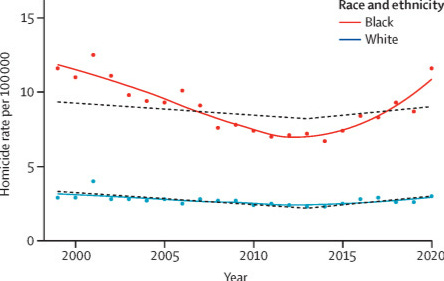
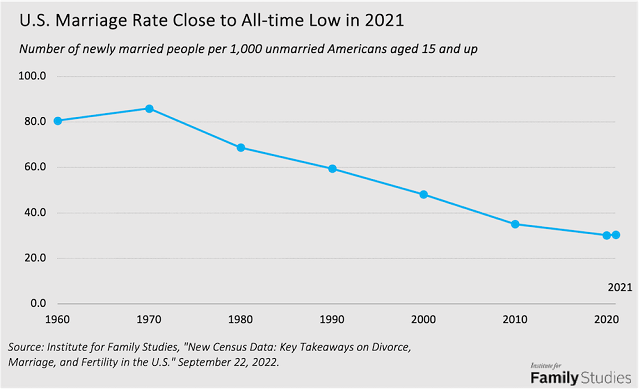

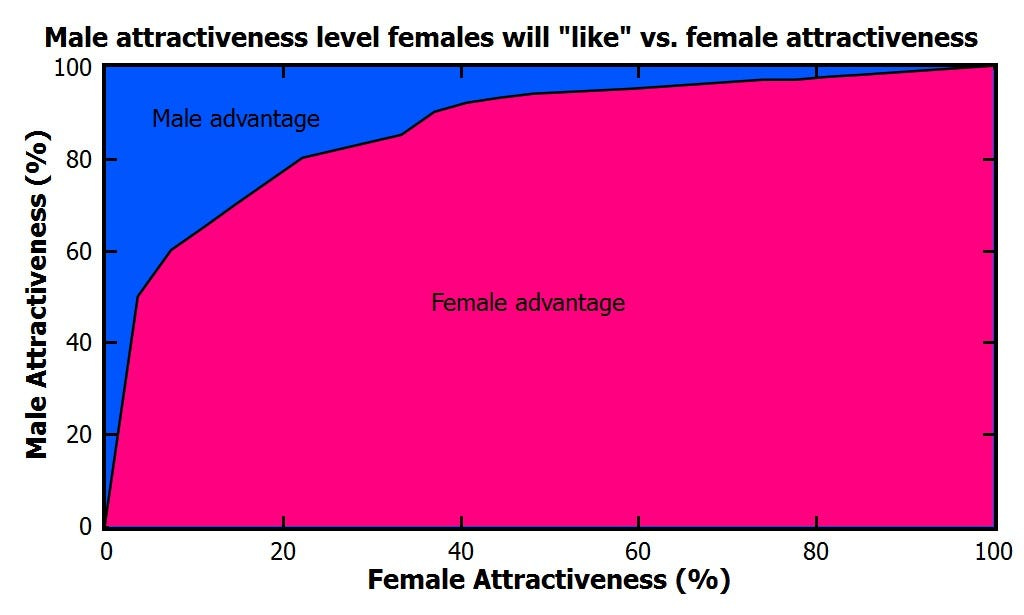
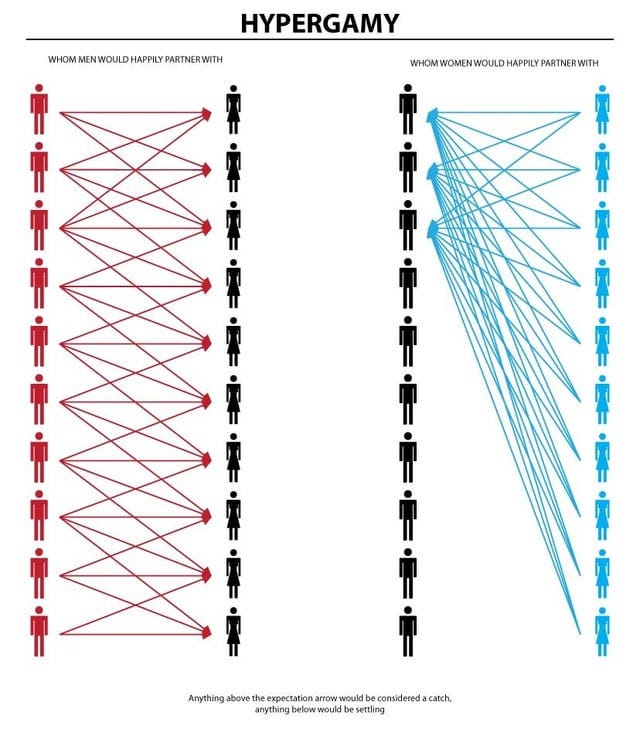




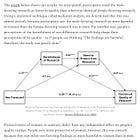
“Women need to choose good men, and our culture should instruct them on the best ways to do it. Too often, women now are encouraged (by the culture and by other women)”.
The disparity here is women are horrible at mate selection, and if women’s intuition is so good, why do women continue to pick bad, unsuitable men and become single mothers in the first place? Rhetorical.
Like the example you provide: “The freedom to select a mate is fundamental to our society. The idea of being forced into a romantic relationship is anathema to our cultural values. We regard the women of Afghanistan, being married off by male relatives or forced into distasteful commitments while still teenagers, with pity”.
However, what made America in its earlier days before modernity struck including other examples of other countries' nuclear-oriented family structured cultures like Asian, European and African successful historical some even now so flourishable and prosperous, which contributed to maybe not happily married 100% of the time, however successful under your guise of duty, were arranged marriages. When the heads of families, more particularly kings, chiefs, tribal leaders, and/or fathers, got together and married sons and daughters off.
Tragedy does strike, and widows have my sympathy. Single mothers are a totally different creature and deserve zero respect because they put themselves in that position by doing one of three things. She either A.) chose to give a poor, low-value man that gave her the tummy butterflies a child, hoping it would miraculously change him. B.) She had a child with a good, stable father figure type yet thought she could do better, (hypergamy) therefore ruining the lives of everyone involved. Or C.) She attained a good man until she found out that good man required her to be a good and better woman.
If we already know these modern women have abandoned all traditional values at the altar of feminism and are guilty as charged of being repeat offenders of being horrible at picking men for a strong, sustainable relationship as a society and culture, why do we continue to provide them with the entitlement and privilege of continuously going down a path of profligating abhorrent, destructive behavior? Rhetorical. Because child support is a billion-dollar industry and the government refuses to hold women accountable for their actions.
Have we forgotten women want to be treated equal to men, and in the same breath, they want special treatment as well? Rhetorical. Well, it doesn’t work like that.
Why is it that we as a society teach boys/men how to treat girls/women?
However, we don’t, or ever as a society, teach girls/women how to treat boys/men? Rhetorical.
“It is women who suffer more infidelity”?
The studies disagree:
-Equal Opportunity Cheating: Women and Men Cheat at Same Rate
https://abcnews.go.com/Health/women-cheating-men-study/story?id=13885519
-Women beat men in the adultery stakes: Ladies who cheat have 2.3 secret lovers compared to 1.8 for the blokes
https://www.dailymail.co.uk/news/article-2145925/Women-beat-men-adultery-stakes-Ladies-2-3-secret-lovers-affair-compared-1-8-blokes.html
-Why Women More Likely To Cheat Than Men, According To Science
https://www.yourtango.com/201172881/women-more-likely-cheat-men-heres-why
-Is Female Infidelity on the Rise?
https://www.psychologytoday.com/intl/blog/our-gender-ourselves/201210/is-female-infidelity-on-the-rise
-The New Face of Infidelity
http://online.wsj.com/article/SB10000872396390443684104578062754288906608.html
“It is women who suffer more physical abuse”?
The studies would disagree:
-WOMEN OR MEN: WHO USUALLY INSTIGATES DOMESTIC VIOLENCE?
https://www.domestic-violence-law.com/blog/2016/april/women-or-men-who-usually-instigates-domestic-vio/
-According to Domestic Violence - StatPearls - NCBI Women account for a little over half of the perpetrators.
*Differences in Frequency of Violence and Reported Injury Between Relationships With Reciprocal and Nonreciprocal Intimate Partner Violence
https://www.ncbi.nlm.nih.gov/pmc/articles/PMC1854883/
In relationships without reciprocal violence, women committed 70% of all violence. However, men were more likely to inflict injury than women.
-Domestic violence against men
https://en.m.wikipedia.org/wiki/Domestic_violence_against_men#:~:text=In%20relationships%20without%20reciprocal%20violence,to%20inflict%20injury%20than%20women.
-Extensive Research: Women Initiate Domestic Violence More than Men, Men Under-report It.
https://aliesq.medium.com/extensive-research-women-initiate-domestic-violence-more-than-men-men-under-report-it-3bbaa4fbec9d
-IPV: Female Initiated Violence Against Men
https://arizonaforensics.com/ipv-female-initiated-violence-against-men/
-The Gender Hush Factor: Domestic violence is often seen as a female victim/male perpetrator problem, but the evidence demonstrates that this is a false picture.
https://blackwestchester.com/the-gender-hush-factor-domestic-violence-is-often-seen-as-a-female-victim-male-perpetrator-problem-but-the-evidence-demonstrates-that-this-is-a-false-picture/
-Harvard study says 70 percent of domestic violence is committed by women against men
http://newscastmedia.com/domestic-violence.htm
Let’s also consider the fact if you eliminate men from relationships. Lesbian couples commit more violence towards each other than gay couples or men in relationships with men.
The studies prove:
-More domestic violence in lesbian couples than heterosexual.
61% of bisexual women and 44% of lesbian women surveyed in 2013 reported some type of intimate partner violence (IPV) compared to 35% of straight women. Intimate partner violence includes emotional/verbal abuse, physical abuse, stalking, sexual assault, and more.
Abuse in Lesbian Relationships
https://www.standffov.org/tdvam/abuse-in-lesbian-relationships/#:~:text=61%25%20of%20bisexual%20women%20and,%2C%20sexual%20assault%2C%20and%20more.
-When Intimate Partner Violence Meets Same Sex Couples: A Review of Same Sex Intimate Partner Violence
https://www.ncbi.nlm.nih.gov/pmc/articles/PMC6113571/
-Comparisons of Intimate Partner Violence Among Partners in Same-Sex and Opposite-Sex Relationships in the United States
https://www.ncbi.nlm.nih.gov/pmc/articles/PMC2775776/
-DOMESTIC VIOLENCE PEAKS MORE THAN EVER FOR THE LGBTQIA+ COMMUNITY
https://dcvlp.org/domestic-violence-peaks-more-than-ever-for-the-lgbtqia-community/
-Vital Statistics on Domestic Violence in LGBTQ+ Communities
https://mandatedreporter.com/blog/vital-statistics-on-domestic-violence-in-lgbtq-communities/
-Domestic Violence and the LGBTQ Community
https://ncadv.org/blog/posts/domestic-violence-and-the-lgbtq-community
-Is violence more common in same-sex relationships?
https://www.bbc.com/news/magazine-29994648.amp
-Domestic violence in lesbian relationships
https://en.m.wikipedia.org/wiki/Domestic_violence_in_lesbian_relationships
-Lesbian Partner Violence Fact Sheet
https://mainweb-v.musc.edu/vawprevention/lesbianrx/factsheet.shtml
-Domestic Violence Likely More Frequent for Same-Sex Couples
https://news.northwestern.edu/stories/2014/09/domestic-violence-likely-more-frequent-for-same-sex-couples/
-If You’re Not Straight, You’re at Higher Risk for Domestic Violence
https://www.smithsonianmag.com/smart-news/if-youre-not-stragiht-youre-at-higher-risk-for-domestic-violence-180949988/
-DOMESTIC VIOLENCE IN LGBTQ RELATIONSHIPS: MYTHS, SIMILARITIES AND WAYS TO BE SUPPORTIVE
https://wingsprogram.com/domestic-violence-lgbtq-relationships-myths-similarities/
-INTIMATE PARTNER VIOLENCE AND
SEXUAL ABUSE AMONG LGBT PEOPLE A REVIEW OF EXISTING RESEARCH
https://williamsinstitute.law.ucla.edu/wp-content/uploads/IPV-Sexual-Abuse-Among-LGBT-Nov-2015.pdf
-Domestic Violence in the LGBT Community
https://www.americanprogress.org/article/domestic-violence-in-the-lgbt-community/
-Understanding Intimate Partner Violence in the LGBTQ+ Community
https://www.hrc.org/resources/understanding-intimate-partner-violence-in-the-lgbtq-community
Feminism had indoctrinated a fallacious fabricated lie that "Toxic Masculinity” exist. If toxic masculinity exist then so does toxic femininity. You can not have one door open and close the other. If in fact toxic masculinity exist. Then why is it as a society 45% of boys are raised by single mothers. 78% of teachers are female. So, close to 50% of boys have 100% feminine influence at home and 80% feminine influence at school. Toxic masculinity isn't the problem. The lack of masculinity is." Yes it’s a woman’s duty to choose well however it’s a families more importantly the men’s duty to make that choice either for or with her. Generally, long term decisions left up to the choices of women have always resulted in calamity.
It's a man's duty to stop being so worthless and disgusting.
Men like you will be sent to the mines soon, James. You shouldn't be online trying to organize your irrational thoughts into sentences. You should be at work.
Women don't care what losers like you think. Go talk to the men on OnlyFans, then go talk to the Taliban.
You're worthless.